Materials
Polyaspartic Floor Coating
Protect and enhance your floors with fast-curing, UV-resistant polyaspartic flooringby Apex Epoxy Flooring. Book a consultation with our epoxy flooring installersand experience 4x stronger coating materials for your property.
Polyaspartic Garage Floor Coatings with Next-Day Return to Service
Apex Epoxy Flooring polyaspartic floor coatings consist of a two-part polyaspartic resin system. This SPARIC-ALL™ RM Polyaspartic Coating material from Simiron systems uses a base resin and a hardener which are mixed together just before application to initiate the curing process. Our flooring company uses this for protecting interior flake or quartz broadcast floors, concrete and polished concrete.
Moreover, polyaspartic unique resin floor coating systems are highly resistant to environmental factors that can cause premature wear and deterioration. Polyaspartic poured resin floors are engineered to exhibit superior chemical resistance, UV stability, and mechanical strength compared to traditional coating materials such as epoxy or urethane. With proper maintenance, polyaspartic-coated concrete floors can last more than 20 years for commercial, industrial and residential settings.
Polyaspartic Floor Coating Near You With State of The Art Features
Apex Epoxy Flooring has seen a high demand for polyaspartic floor coatings among property owners in Florida. Beyond their durability, more individuals are starting to adapt and upgrade with this material for both interior and exterior applications, especially for epoxy garage floorcoating.Here’s a wide rangeof reasons why polyaspartic epoxy floor systemsis the perfect and long-lasting solutionfor your property:

Moisture Tolerance
Our polyaspartic top coat for epoxy floor contains moisture-resistant polymers and additives that create surface
porosity and a barrier against moisture infiltration and organic compounds. These polymers are designed with an aliphatic polyurea backbone which provides the coating with a high degree of impermeability to water and moisture vapor. This component is responsible for repelling water molecules and preventing them from penetrating the coating and reaching the substrate.
Low Thickness
Polyaspartic coatings can be applied thinly while still providing robust protection and coverage.
It boasts a high solids content, referring to the proportion of non-volatile components in the coating formulation of the epoxy flooring. This high solids content contributes to the coating’s ability to form a durable protective layer while minimizing the volume of solvents or water present.
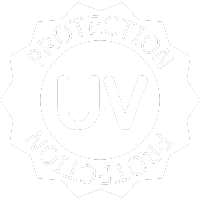
UV Stable
Apex Epoxy Flooring polyaspartic coating epoxy floor use UV exposure inhibitors or UV stabilizers in the coating
formulation. This means effectively shielding the underlying substrate from UV-induced degradation and discoloration even when exposed to sunlight.
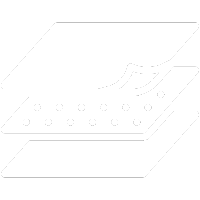
Intercoat Adhesion
The strong inter-coat adhesion in polyaspartic coatings is primarily facilitated by their unique chemical
composition and curing mechanism. Polyaspartic coatings undergo molecular cross-linking, where the polymer chains within the coating material form strong bonds with each other as they cure. This allows successive layers of polyaspartic coating epoxy resin floor to bond firmly without using primers or adhesion promoters.
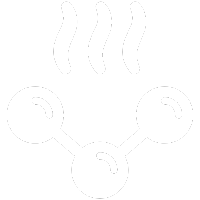
Low VOC
Our flooring company uses polyaspartic as concrete floor coating materials that are free from such as benzene, toluene,
xylene, and formaldehyde. These are organic chemicals that evaporate into the air and may pose health risks to humans and the environment. That is why we follow careful coating materials selection to minimize emissions of harmful chemicals, especially during installation.

Reduced Bubbling
Reduced bubbling in polyaspartic protective coatings is made possible by their unique combination of low
viscosity and exceptional self-leveling epoxy floor. Unlike traditional epoxy coatings, the low viscosity allows the material to flow smoothly and evenly over the surface, facilitating the expulsion of air bubbles during application. Moreover, the self-leveling floor epoxy property ensures that the coating settles evenly, minimizing surface imperfections as it cures — even without advanced application methods.
Polyaspartic Floor Coatings Perfect For All Spaces!
Polyaspartic garage flooroffer property owners the convenience of next-day return to service through its 1.5 to 3-hour rapid curing time after application. Unlike traditional coatings that can take days to cure, polyaspartic concrete coatingsare ready for use within 24 hours after application, thanks to their quick molecular cross-linking process.
Thanks to the fast-curing nature of polyaspartic formulations, Apex Epoxy Flooring professionals typically complete the application process in just one day. Thus, allowing property owners to resume normal operations quickly, minimizing downtime and maximizing productivity. Contact our polyaspartic floor coating installers near youtoday and enjoy durable and lasting floors with minimal downtime.
Frequently Asked Questions
Whether it’s for residential, industrialor commercial floors, Apex Epoxy Flooring is here to address all your queries about incorporating the best polyaspartic floor coatinginto your projects. You can also contact our flooring experts to book a personalized consultation for your epoxy flooring installation.
Can you recoat polyaspartic flooring?
Yes, polyaspartic coatings can be recoated. Unlike some traditional coatings that require extended waiting periods between coats, polyaspartic coatings can typically be recoated within a few hours to a day after the initial application. This makes it convenient to apply multiple layers for enhanced durability or to refresh the appearance of the concrete surface.
Are polyaspartic floors worth it?
Yes, polyaspartic floors are worth it for many property owners due to their durability against high-traffic areas, impacts, and chemicals. Moreover, polyaspartic coatings have a fast curing time that enables quick installationand minimal downtime. They are also UV stable, meaning they won’t yellow or degrade when exposed to sunlight.
Does polyaspartic need a primer?
In many cases, polyaspartic coatings do not require a primer. Unlike some other coatings that rely on primers for adhesion to the substrate, polyaspartic epoxy flooring systemstypically have excellent adhesion properties on various surfaces, including concrete, metal, and existing coatings. However, certain substrate conditions such as moisture-prone and contaminated surfaces may require a primer to enhance adhesion or address compatibility issues.
How do you clean polyaspartic?
Cleaning different types of floor coatings can be done using a mild detergent or pH-neutral cleaner mixed with water. Begin by sweeping or vacuuming the surface to remove loose debris, then mop the floor with the cleaning solution and a soft-bristle brush or mop. For tougher stains or spills, gently scrub the affected area with a non-abrasive pad or sponge. Avoid using harsh chemicals, abrasive cleaners, or acidic solutions. Once clean, rinse the surface thoroughly with clean water and allow it to air dry or dry with a clean towel.
How many coats of polyaspartic do I need?
A typical application consists of two coats: a base coatfollowed by a topcoat. However, some projects may require additional coatings to enhance durability or achieve specific aesthetic effects. You can also consult with an Apex Epoxy Flooring professional to ensure the appropriate number of coats for your property’s floor surface.
Get In Touch
Get a Free Epoxy Flooring Estimate
